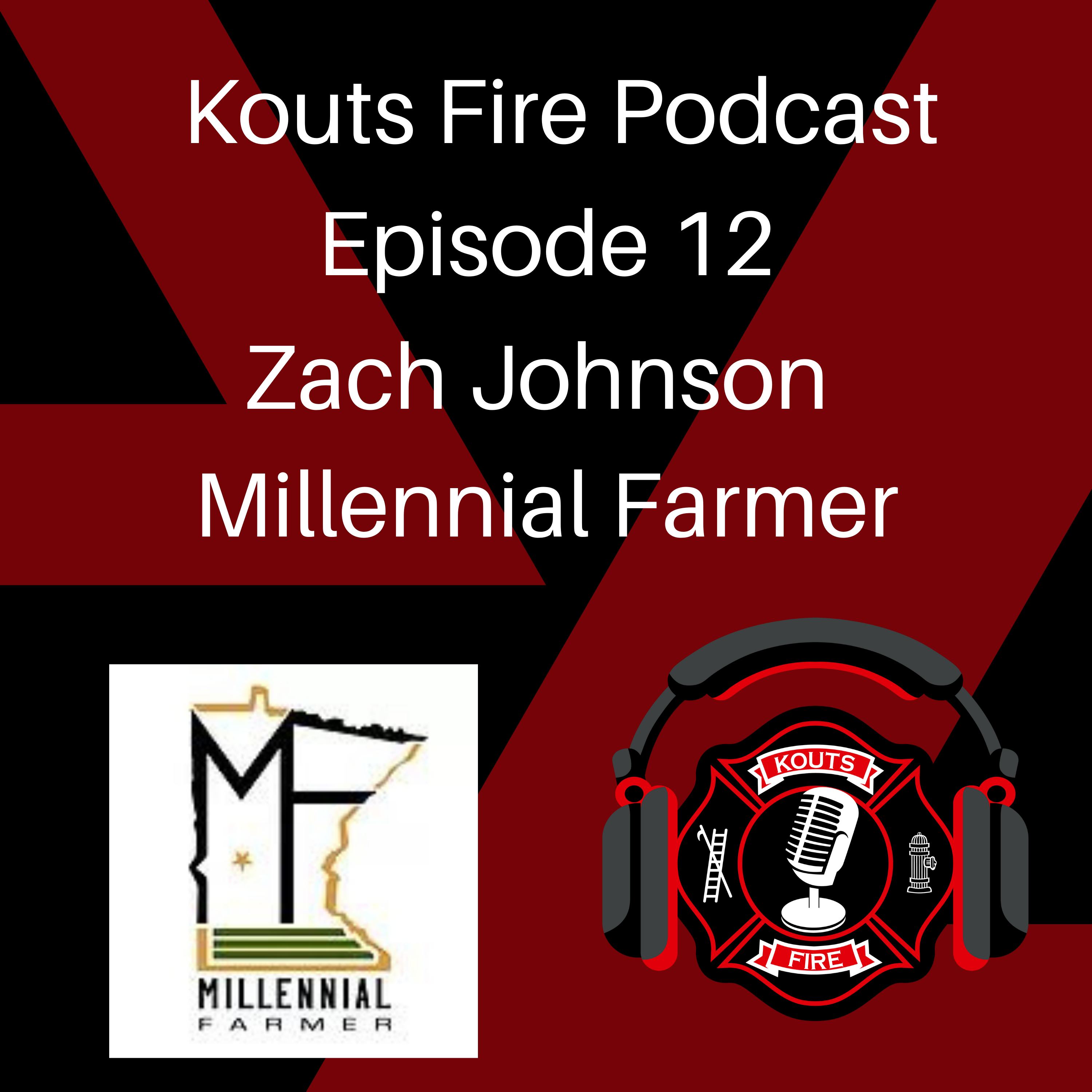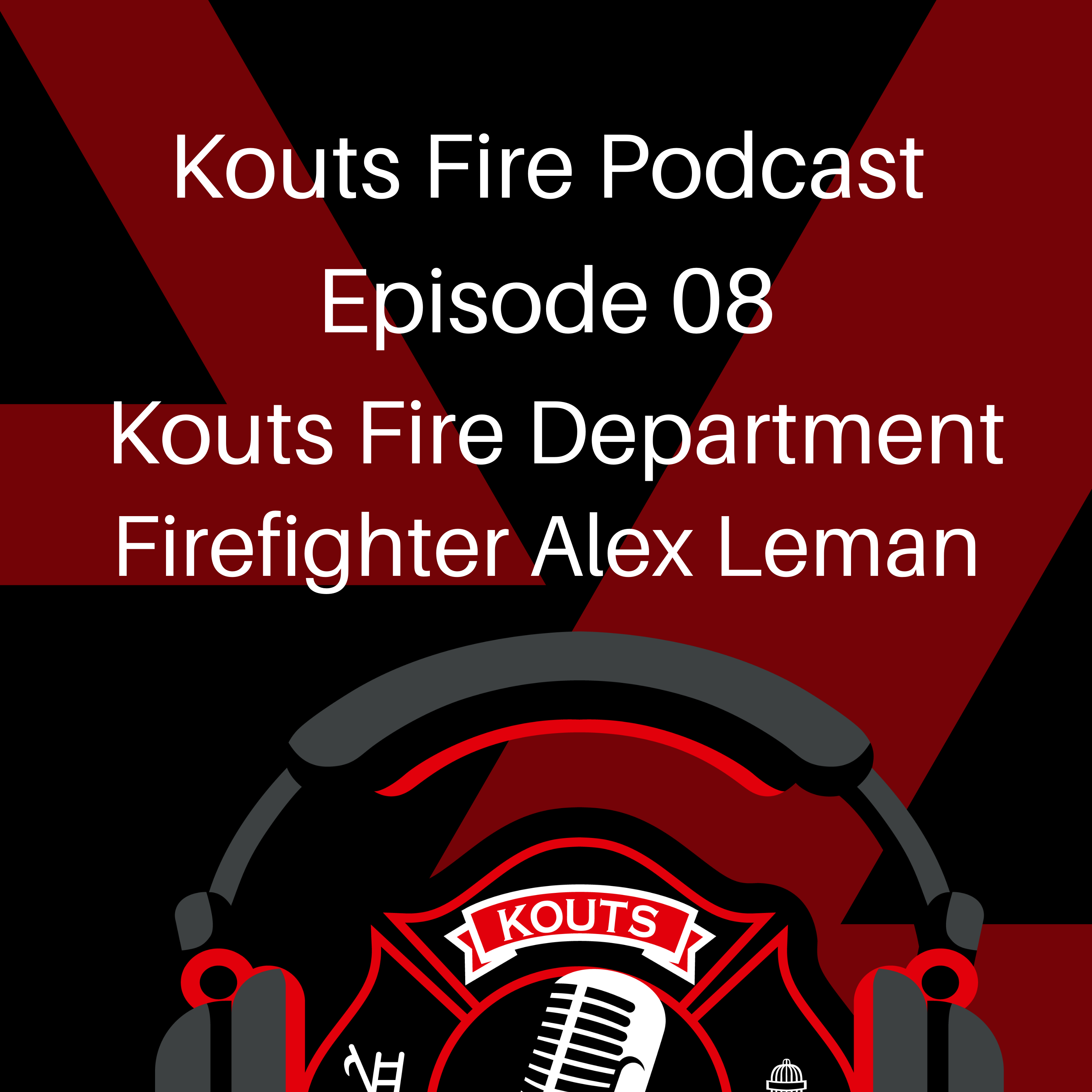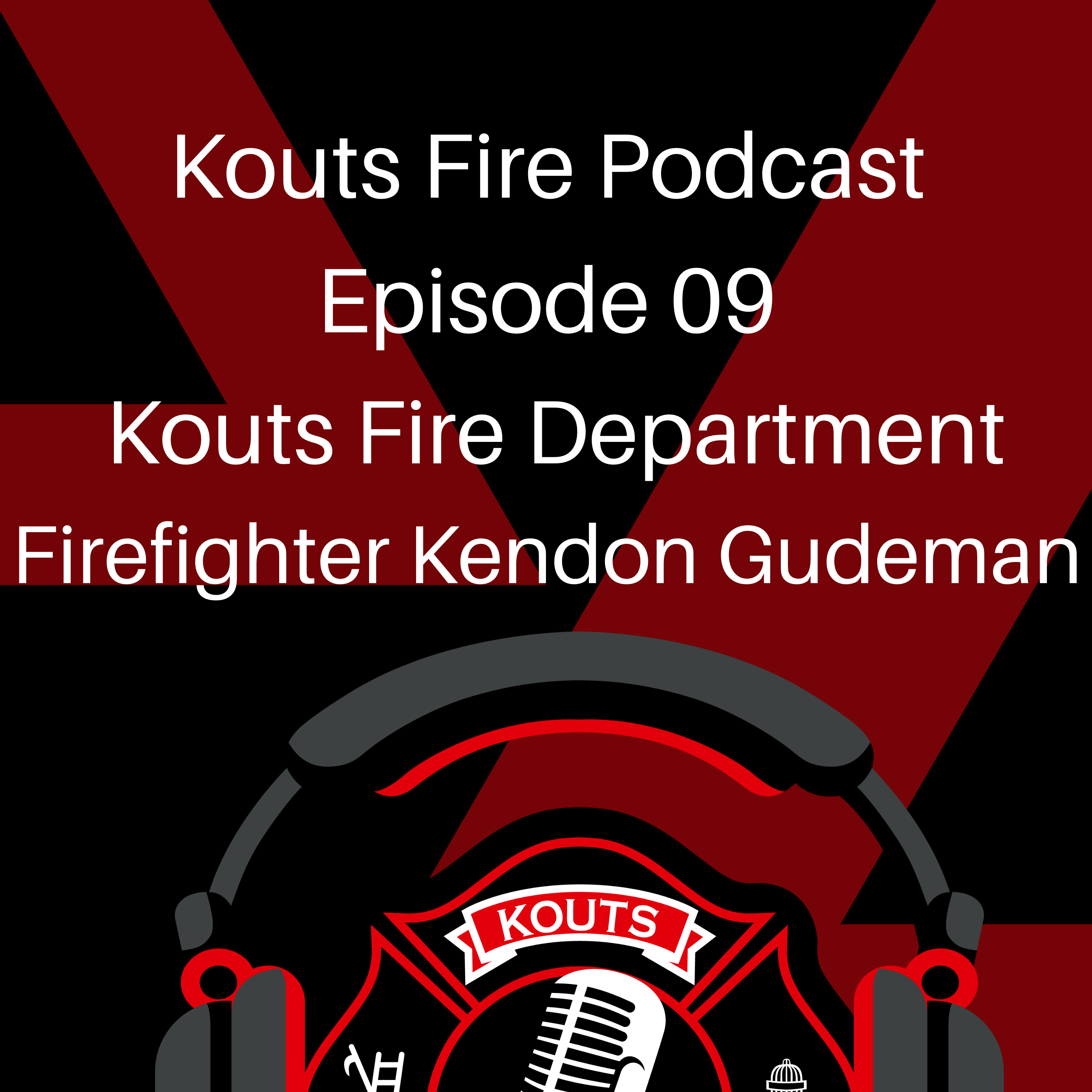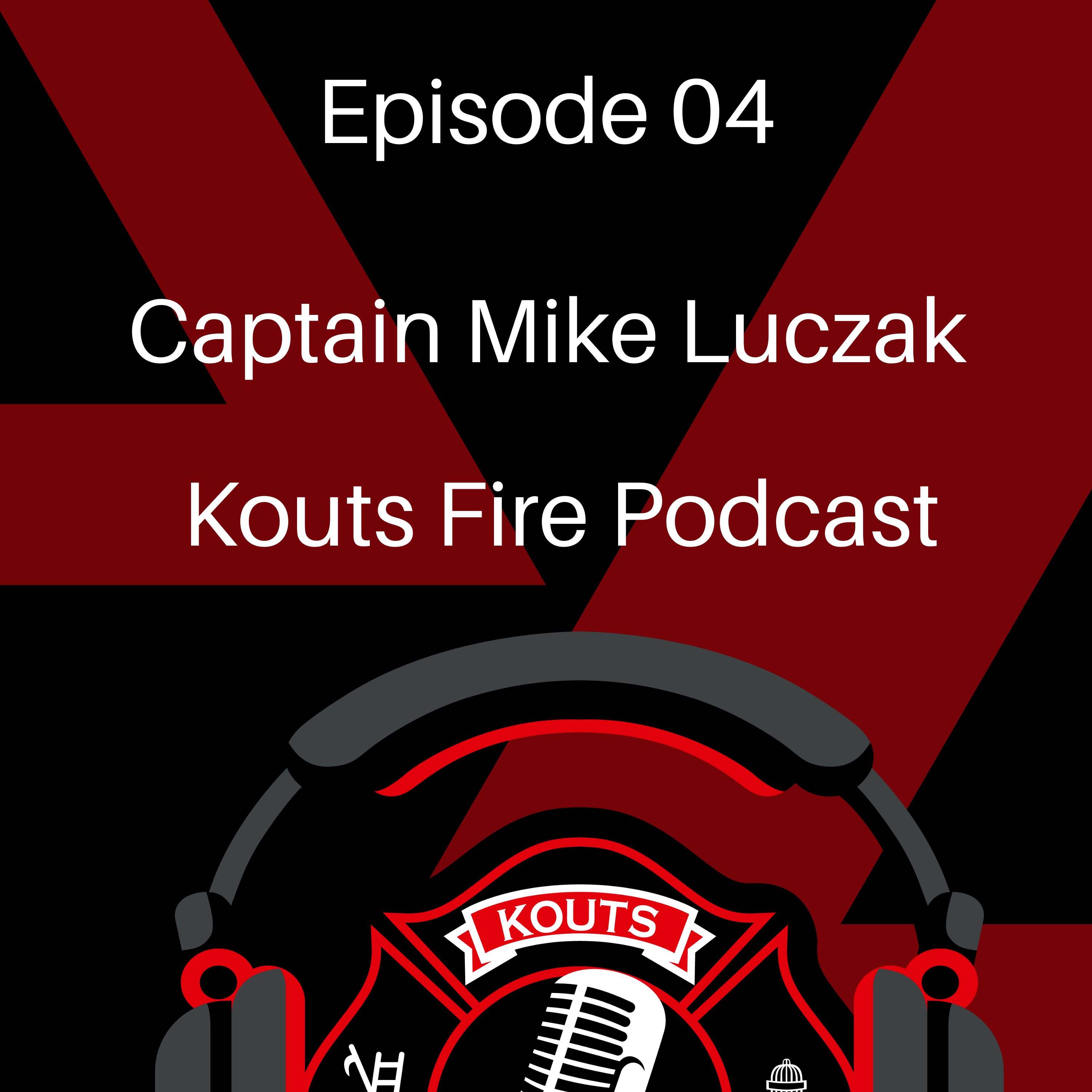Episode Transcript
Speaker 0 00:00:00 This, this is the count's fire podcast, where we introduce our members and our mutual aid department members while educating the community and bringing value to the fire service. And now here's another episode of the Coutts fire podcast.
Speaker 1 00:00:19 This is Kevin Billingsley. I'm sitting here with Don suitor, assistant fire, chief of Coutts fire. And today on the phone, we're speaking with Zach Johnson who is better known on YouTube as the millennial farmer. EES is this Kevin, this is Kevin. I'm here with our assistant chief Don suitor. Hey, how are you? Good. How are you doing Zach? I am good. We're uh, we're pretty excited to be able to talk to you today, man. We won't take up too much of your time. Just got a few questions, real appreciative of your donation. We'll talk about that in a little bit, but how long has your family had that property
Speaker 2 00:00:52 There? Ah, since 1868.
Speaker 1 00:00:55 And your family's been farming it all that time, huh?
Speaker 2 00:00:57 Yup. Yup. We got homesteaded in 1874. How many generations have been on that farm? I'm the sixth. And now raising potentially the seventh. Yeah, it's quite the deal. It's it's pretty cool. We're proud of it. Now. How much land do you guys currently farm? Uh, we farm about 26, 2700 acres
Speaker 1 00:01:16 Now, not that long ago. Um, I listened to one of the podcasts. I can't remember the two ladies that interviewed you, but that was pretty interesting. They asked you some pretty funny questions about an island or something that was pretty entertaining.
Speaker 2 00:01:27 It must have been with the New York farm bureau.
Speaker 1 00:01:29 That's it right. There you go. Exactly right. Yup. Yup. That was pretty funny. I know you started your YouTube channel because you, uh, were concerned with people having a misconception about farming and getting the right word out. What was, what's the one biggest misconception that caused you to want to do that?
Speaker 2 00:01:48 No, I would say in general, it just, it seems to me sometimes like consumers or a certain percentage of consumers, unfortunately don't understand exactly what it is we do and why we use some of the management practices that we use. And I mean, if you think about it, farmers and ice out here in the rural areas were the first ones affected by the management styles or the decisions that we make. Right? So if we don't take care of our natural resources, that affects us before it affects anybody else. Well,
Speaker 1 00:02:20 As far as farming goes what's to you, what's the best part
Speaker 2 00:02:23 Of it. I would say being able to raise the family on the farm and live right here on the farm and you know, the pride that you get in planting the crop, raising the crop and then seeing it through to fruition, every harvest. That's not something that everybody has the opportunity for, with their jobs, right? So
Speaker 1 00:02:42 That's something that passed down to you and you can pass down to yours. Right?
Speaker 2 00:02:45 Exactly. It's, it's, it's a very rewarding job. I
Speaker 1 00:02:49 Think I read somewhere that you, uh, used to do, do dirt track racing. Do you still do dirt track racing?
Speaker 2 00:02:56 I still do it. Yep. I've been in dirt cars since I was
Speaker 1 00:02:59 15. And that was only a couple of years ago, right?
Speaker 2 00:03:02 Yeah. 21 years ago now actually.
Speaker 1 00:03:04 Wow. I was trying to make it a couple.
Speaker 3 00:03:07 So how's the crops up there, Zach, you know,
Speaker 2 00:03:10 We're, we're pretty dry right now. The lawns are starting to burn up, but um, as odd as it seems to me, the crops actually look really good right now the corn is, is curling up a little bit from some stress, but overall, I mean, it looks pretty good. I don't know that we're hurting yield yet, but we will need some rain really soon.
Speaker 3 00:03:29 Yeah. I'm the farmer of the group. I used to be a custom applicator. So I was the sprayer at the fertilizer guy, but I retired now. I worked for a farmer like a, your hair man does
Speaker 2 00:03:44 Only, I don't get stuck as often as he does. Well, we got to give him grief about something. Right.
Speaker 3 00:03:50 That's great. I just came out of the field with spraying and beans there just 10 minutes ago.
Speaker 2 00:03:57 Oh, there you go. Yeah. We've got about a hundred acres of beans left to spray tomorrow and then that'll finish our, our first post emerge pass. So we're, we're kind of caught up right now.
Speaker 3 00:04:07 Yeah. I had to run over the corner again because of the water amp was, uh, did not get killed.
Speaker 2 00:04:14 We've got the same problem up here. That water hemp is really tough to kill it for us.
Speaker 3 00:04:22 It is. Yep. Yep. Well, we're about the same as you were, uh, on the dry side, but everything really looks good.
Speaker 2 00:04:30 Well, that's good. Yeah. What part of Indiana are you in?
Speaker 3 00:04:32 Northwest Indiana? We're about Northwest. Okay. 60 miles from Chicago.
Speaker 2 00:04:39 Okay. Gotcha.
Speaker 3 00:04:40 So we're on the canc ki river valley there.
Speaker 2 00:04:45 Oh, I was just going to ask if you're near Kankakee area. Yeah.
Speaker 3 00:04:48 The river is about five miles south of the town here.
Speaker 2 00:04:53 Okay. They got a cool little racetrack in Kankakee. Yeah.
Speaker 1 00:04:57 How's that go? Not that long ago. You sent a donation to us here at Coutts fire first. Like I said, I'd like to thank you for that. We all would. All the, all the guys here are absolutely impressed and very, very happy with your generosity. What caused you to, uh, want to raise money for a volunteer fire departments?
Speaker 2 00:05:16 You know, it seems like unfortunately there's kind of been a rash of green being the incidents up here is particularly in the upper Midwest, in the Dakotas and Minnesota. And we had a, we had kind of a poor quality crop in 2019 and unfortunately it, it was causing a lot of problems in grain bins and we were seeing some of those unfortunate accidents happen. Um, in 20, I believe it was 19. We had a pretty bad accident in a, in a silo up here with a local family and, you know, keeping both those things in mind, we just decided that with our platform and kind of what we've been fortunate enough to build up, we could use that platform for good to try to really give back to the community. So that's what we did. We kind of put it out there at first as something that we wanted to give back to.
Speaker 2 00:06:08 And we weren't exactly sure where it was going to go from there. We knew we were going to give back. We hadn't entirely figured out, you know, how much or where to, or what it was going to be used for. And, um, the more we thought about it and the more people were asking about having us do it, we decided to open up a GoFundMe account. So we did that and overnight we had close to 20 or $30,000 in that account. That was all going to be, you know, donated to the individual departments and first responder crews for the training and the equipment. And I just continued to snowball from there. And in the end it was a, oh, I believe it was close to $70,000 that we ended up, uh, giving away to 53 departments in 14 different states. So it was incredibly rewarding. We still got a little bit flowing in here and, um, we've got plans to give out a little bit more here, but yeah, I mean, it ended up being so much that we actually had to get our ducks in a row and we started our own nonprofit organization for, for next time we decided to do something like that. Oh, wow.
Speaker 1 00:07:10 I didn't know. You actually had to start a, I mean, uh, a nonprofit for that. That's crazy.
Speaker 2 00:07:17 Well, we, we didn't actually, when we did the, um, when we did the, the, the rescue equipment training, but it ended up being so many more dollars than what we were imagining that we, you know, we just decided, gosh, we don't want those dollars flowing through us at all. So we started a whole different organization. So that next time we do do something, if it gets that big again, we don't even, you know, we have nothing to do with the dollars. We, we kind of facilitated in it and it flows through the nonprofit.
Speaker 1 00:07:45 Right? No, I, yeah. It would be able to keep fun, separate, and make sure everything is working right. That's got it. Right. That's a huge responsibility, man.
Speaker 2 00:07:54 That's kinda w yeah, what I'm getting at is that I was a little bit nervous about that responsibility. So try to make sure I've got all my ducks in a row better next time, because it was just unbelievable. The amount of support we got and the amount of people that wanted to pitch in and help out.
Speaker 1 00:08:09 Now I have to ask it. And if it's a bad story, by all means, don't answer the question. But have you ever had the need for, uh, the fire department to respond out there for a brush fire or anything?
Speaker 4 00:08:22 Um,
Speaker 2 00:08:23 You know, I'm not sure that we have personally on, on our farm, I guess, as far as what I can remember, I don't believe so. Um, but, but I know a lot of people who have, and I have a lot of good friends that are on our, our volunteer departments. We're kind of right on the line in between a couple of different departments here. And, um, I would say I know 80 to 90% of the people on those departments and really appreciate the work that they do to, you know, get up at two o'clock in the morning if, if somebody needs help or, um, you know, personally been a part of, I know, to successful grain bin rescue is just in the last three years. So I have a lot of respect for those guys. And for you guys for what you do to keep the community safe, what more
Speaker 0 00:09:07 Of the Coutts fire podcast it's coming right up after this, did you know, for 100 years, the Coutts fire volunteers have responded to every request for service. They have continuously upgraded and maintain their tools and apparatus to ensure prompt and professional response. All of this would not be possible without the generous contributions from the community and beyond if you would like to help support the cow's fire department, go to Coutts, fire.com backslash donate, or by mailing your donation to Coutts fire PO box 3, 2 5, Coutts, Indiana 4 6, 3, 4 7. Your generosity is greatly appreciated and every amount helps from all of the volunteers at Coutts fire. Thank you,
Speaker 3 00:10:03 Zach. Do you think your corn is, I don't know, uh, a poor quality because I know you guys short season, then you guys really pick it wet. Um, do you think it is dirty, dirtier than normal because of that running through the dryer that much?
Speaker 2 00:10:22 I do. I think that's kind of the part of the bigger reason why we have issues with it more here in Minnesota and the Dakotas, you know, we can grow good corn, but like you say, we have a shorter season. A lot of the times our test weight is lower and we run it through the dryer, like you said, and it gets dirtier and it doesn't keep quite as well. Um, we also have a lot more, I think on-farm storage here than you guys do in Indiana, Illinois, Iowa. Um, w we tend to be able to capture a lot more market opportunity if we store for awhile and, and pick up, um, extra carry in the market. So w we've got a lot more on farm storage, and I do believe that our, our corn quality certain years anyway, is not quite as good. So I think those two combined are kind of a big part of the reason why we, we end up with, with more issues up here,
Speaker 3 00:11:12 Right? I'm a YouTube follower, yours, and I seen you load in carton, I guess it was this week. And I thought, wow, that's pretty dirty. You know, I shut her when I watch you guys pick corner at 24 and 25% moisture where we're, we're always down to 19 years old, run through the dryer, get it hot, and then put it in the bed.
Speaker 2 00:11:35 See for us, 19 is a dream. A 24 is average. And anything above 30 is a, is kind of a nightmare, but we we've, we've taken a lot of corn at that 32%. And it's, it's not fun. It causes problems with everything, but sometimes, you know, you just have to do what you have to do to get the crop off, or else you trust mother nature to hold it up over the winter. And I mean, you know how that can go.
Speaker 3 00:11:59 We make silo down 30% corn.
Speaker 2 00:12:03 It, well, we try not to, but sometimes we do
Speaker 3 00:12:07 Well, that was a green combine. They can't grind it up anyway.
Speaker 2 00:12:10 Hey, now we don't have to get into that. Now you're getting personal
Speaker 3 00:12:16 Just cause the guy I worked for is all red. So I wouldn't know.
Speaker 1 00:12:21 What's that? How many tractors do you actually have up?
Speaker 2 00:12:24 Oh, how many trackers between dad and I? Now we, we seem to have more than we've ever had right now at the moment. I think we've um, let's see, we've got the 82 30 round yet. We've got a 95, 70 RT and 95, 70 R um, we've got an 83 20, our T I feel like a missing one. We got the Minneapolis Moline, the old Moline. Um, we got a 61 75. That might be all of them now with those six.
Speaker 1 00:12:56 Well, now I know there's, there's a very slim chance that somebody listening to this podcast wouldn't know who you were because of our location. And I know the guys here at the firehouse. I mean, when you guys were doing the drawing for the donation, you had everybody kind of watching. And when our name came off, it was, it's a pretty big deal for us. Where, how would someone finds you online? Like where's the place for them to look you up?
Speaker 2 00:13:21 Uh, the biggest and easiest, most popular spot to find me is on YouTube. You can just look up millennial farmer. Uh, otherwise I'm also on Instagram and Facebook and Twitter. I don't post a lot on Twitter, but I'm on there. Uh, if you Google millennial farmer, you'll find me. How many
Speaker 1 00:13:38 Followers do you currently have right now on YouTube? On
Speaker 2 00:13:41 YouTube. Right now, I'm getting close to 800,000, but I'm not quite there yet. At least last I looked.
Speaker 3 00:13:48 I see you're, uh, learning the pleasures of a brand of a newer truck.
Speaker 2 00:13:54 Uh, the, yes, with the feeder. Oh, the Peterbilt, you know, it's been, it's been one thing after another. I mean, it's a nice truck. It's a good truck, but yeah, we're definitely, we've been kind of through the ringer on that. Every time we tear into something to fix it, we ended up fixing two or three other things along the way. So it's, it's been frustrating, but you know, when it runs nice, it's a nice truck.
Speaker 3 00:14:18 I drive up and down the interstate. You'll see all the new ones parked along the road.
Speaker 2 00:14:22 Right? Yeah. Somebody told me the other day buying a used truck for them has always been their down payment to a, to buying all the parts and service afterwards.
Speaker 3 00:14:30 That's right. You either have a payment for a new truck or you buy parts for the old one. That's what it seems like.
Speaker 1 00:14:38 Hey, do you want me to say anything? What's happening, man. How are you? I am good. How are you? Fantastic. Hey, uh, it's great to have you on the podcast here and just want to tell you, thank you very much for the donation that you guys did and getting us the Stokes basket. We greatly greatly appreciate it.
Speaker 2 00:15:00 Yeah, absolutely. You bet. And, and same as what I told Kevin and Don, you know, thank you guys for what you do as well.
Speaker 1 00:15:07 Absolutely. We, uh, we appreciate the sport and all around at all. Uh, it comes around in full circle. So,
Speaker 3 00:15:14 You know, Zach, we tried using that the other day. We, uh, the guy I worked for as empty grain bins, so we took it out there. We have a ladder truck, so we put the ladder truck up and we got the Stokes stuffed down through that little man hole up on top. And, uh, we pulled, uh, a dummy up through there. It's, uh, quite the task.
Speaker 1 00:15:37 Yeah. We, we were able to set up a system, the, with pulleys and whatnot to get the victim out extricated from the grain bin. And, uh, it worked out great to have that piece of equipment and set the rating up and get them down safely and actually here, uh, I think the guy that Dan's referring to Matt, good, he's got a, another grain bin that he's going to have some grain in and we're going to actually do a scenario based style training with it and, uh, get multiple mutual aid, fire departments out involved with us that way. Uh, we can do, uh, an actual live training and the actual victim and things of that sort. So,
Speaker 2 00:16:17 Oh, that'd be great. Yeah. That's, that's useful stuff right there. And, you know, in case you'd ever actually have a situation where you needed that, that that's you.
Speaker 1 00:16:25 Yup. Yup. Uh, in my career, we've, I've dealt with two of them. Unfortunately they were both fatalities. However, getting the, the victims out was, uh, quite the, quite the deal. So
Speaker 2 00:16:39 Yeah, I can imagine it would be. I know at the training I was at with my buddy, Randy, and actually most of the guys that I did that video with are on the department and I know most of them pretty well, but you know, it's not easy to fit a human body through those, those man holes on the top of grain bins. So it, like you say, it's, it's something where if you have the training, it can definitely be helpful. Yep,
Speaker 1 00:17:04 Absolutely. Yeah. That was a chief Jeremy Gettler, he's a great guy. Great guy, but yeah, no, I mean, what you've done, the, the donation you've sent and the ability for us to be able to purchase that equipment, not only is something that we can train with for our community, but we also service other communities around us. So it's not just a quick donation or a letter from you. It actually means a lot because we can actually save someone's life with it and we greatly appreciate that.
Speaker 2 00:17:33 Absolutely. You bet. You bet.
Speaker 1 00:17:35 All right. Enjoy the baseball game.
Speaker 2 00:17:37 No, you, you guys are, are good. And I appreciate you guys having me on and, and appreciate what you do with the department. And, you know, we need guys that are willing to do that and willing and able to, uh, to make sure that the rural communities are safe
Speaker 0 00:17:53 For more information about the county fire department, visit Coutts fire.com. Thank you for your support.



